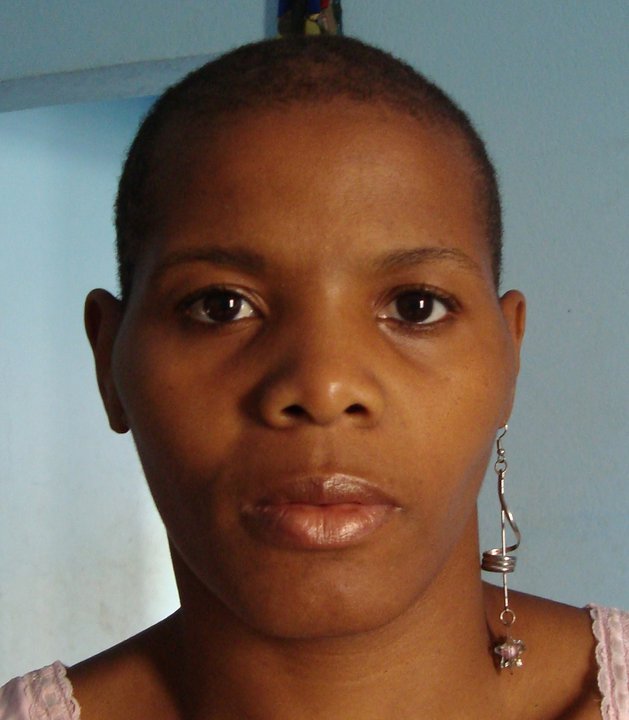Lucimar Medeiros is revolutionizing female wrestling in Brazil

I’m watching 15 female and male young adults, all in the same T-shirts worn over a singlet, grapple with each other as their coach, Lucimar Medeiros, looks on. Medeiros is the supervisor of the wrestling program at São Paulo’s Training and Research Olympic Center (Centro Olímpico de Treinamento e Pesquisa or COTP) in Brazil. She is also the first African-Brazilian woman to serve in this role.
In her heyday, Medeiros was not only an international-level judoka — judo practitioner who undergoes intense disciplinary training — but was also considered the most technically accomplished grappling athlete in South America. In 2000, she transitioned from being a member of the powerful national judo team to wrestling, which has historically been a relatively unknown sport in Brazil. In fact, women started to participate in amateur wrestling in Brazil only about two decades ago. What’s more, many of Medeiros’ titles come from Greco-Roman wrestling in particular, in which traditionally only men participate. Many were further astonished when the athlete served as the national Greco-Roman squad coach at the 2010 Cadet Panamerican Championship.
This accomplishment would be impressive in any male-dominated sport, but it’s especially impressive considering the context of Brazilian culture in which Medeiros was operating. According to a 2015 report by the Instituto Brasileiro de Geografia e Estatística (Brazilian Institute for Geography and Statistics), nonblack working women made 23.6 percent less money than their male counterparts, while black women made even less, at 59 percent less than white men. Violence against women is also a significant issue in the nation: UNESCO’s Latin American Social Sciences Institute’s 2015 Map of Violence shows that Brazil ranks fifth out of 83 countries in terms of femicide and, according to 2016 data from the Health Ministry, a gang rape occurs every two and a half hours in the country. A 2015 report by the NGO Fórum Brasileiro de Segurança Pública (Brazilian Forum of Public Security) estimated that a rape occurs every 11 minutes and 33 seconds in Brazil.
Medeiros’ accomplishments, therefore, weren’t easily won. She particularly sees how issues of violence, sexism, and racism are intersectionally enacted in Brazil. “It holds women in an inferior position, where we cannot be independent or have certain jobs,” she told me.
It’s perhaps unsurprising, though of course still unfortunate, that female athletes in the country encounter harassment. It is hard to report such incidents to authorities, Medeiros said, as “we can’t denounce [most] of it because of the lack of evidence” and the confusion of many about “to whom [they should] report. The sports federations? Or do [they] report it as a crime?” Brazil authorities are not known to be resourceful or reliable. The option of reporting cases of harassment or even rape are often curbed by a culture of fear and complicity. While the fall of Hollywood mogul Harvey Weinstein has exposed the harassment committed by many powerful figures in movies, politics, and sports, Brazil has yet to follow suit.
Younger female wrestlers still feel myriad forms of more general sexism in their daily lives, too.
“Here (at COTP) I’m treated as an equal, but outside many folks come at me saying that it is a man thing or joking that they should avoid me to not get hurt,” 19-year-old Beatriz Rodrigues, a wrestler who began to train with Medeiros in 2010, told me. All three of Rodrigues’ sisters tried to be wrestlers, but she was the only one of her lower-middle-class family to make it. Luckily, her policeman father and Biology teacher mother support her.
Medeiros is hopeful, though, that change will come when there is more diversity at athletic podiums. She highlights the fact that the female Japanese team dominates wrestling and newcomers like Norway’s Grace Bullen, who is a refugee from Eritrea, offer hope for new faces in the sport — as do young women from the Nigerian and American teams.
In the midst of this adversity, Medeiros is also regarded by her pupils as a role model and even a mother figure. Medeiros “makes us believe even more in our own potential,” Rodrigues told me, adding that she feels completely at ease when talking to her coach.
Ultimately, that’s Medeiros’ goal. She and her staff try to be part of a transformation to build a better society, and wrestling is a tool to do that by helping young women develop self-esteem and hope.
“It’s up to everyone out there to help build the transformation in the environment that they live in, and this is what we try to do here,” she told me. “Give an opportunity to [change] through our work and dedication.”
More articles by Category: International, Sports
More articles by Tag: Gender bias, Women of color



























